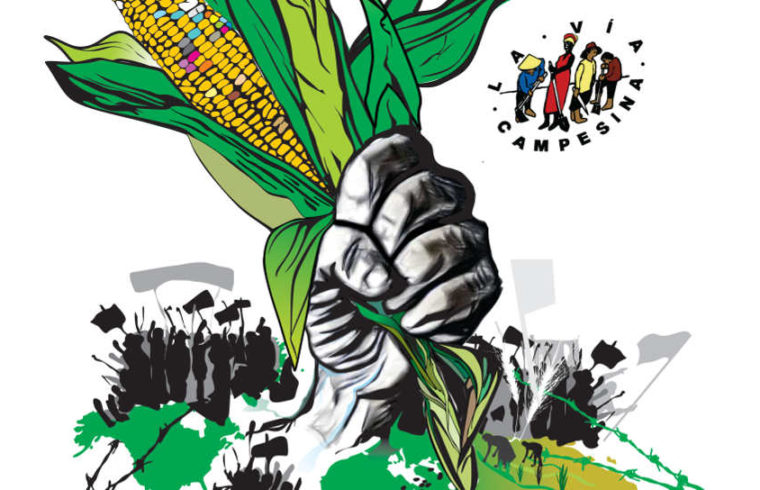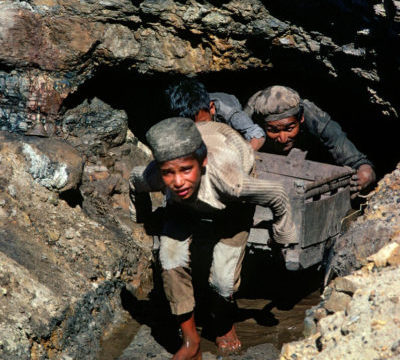Euzamara de Carvalho1
In the environment of the camp-esine resistance’s project and fi ght for democratization of the land, the campesine social movements have, as a mark of their trajectory, prioritizing the question of education, contribut-ing for the formation of collective ac-tors that integrate the whole mass of movements, having education as a ba-sic principle for the change of society.
[…] The Sem Terra’s Movement was concerned about organizing teach-ers’ formation courses, developing a methodology of teaching and re-leasing materials related to agrari-an reform, promoting courses and lectures, meetings, always enhanc-ing the ideals of persistence, fi ght and solidarity, fundamental in the process in which they live. Con-cerned, also, about the children and the adults of the movement’s educa-tion. (VARELLA, 1998, p.153).
According to the references that ap-proach the theme, like the refl ections contained in the “Dicionário da Ed-ucação do Campo”2, and Varella’s af-firmation, an important point of this path is promoting spaces of collective accumulation, such as seminars, conferences, that go on strengthening the debate and pointing to the necessity of demanding public politics of education specific to the countryside popu-lations. It’s in this context that emerges the National Program of Education in the Agrarian Reform (PRONERA), created in 1998.3.
The PRONERA program emphasized on greater attention to the legitimiza-tion of social movements’ fl ags, in the fi eld of formulation and achievement of new rights, contributing with the democratic principles that guide the Democratic State of Right.
Placing the Law “not as a stagnated order, but as achievement, on fi ght, of the libertarian principles, in the movement of social totality, where the Law, the kingdom of freedoms, would have as boundary, only the liberty it-self” (Sousa Silva apud Lyra Filho), the PRONERA program took a path think-ing of the environment of formulation and consolidation of public politics elaborated according to the country-side social movements’ demands. The perspective was guaranteeing public politics on education to the people of agrarian reform camps and settle-ments.
The creation of the First Class of Law turned to the public of rural workers happened as a result of the countryside education project and of the fi ghts made by countryside social movements. It made possible to per-form actions of formation in a critical and emancipating way, in the context of fi ghting for rights.
In that sense, the program contrib-utes to the visualization of the reach of human rights’ actions, that in some moments seem to be so distant from reality, with a crystallized and abstract reading of their applicability as rules which intend to guarantee basic rights.
The six classes of PRONERA, the Pio-neer Class Evandro Lins and the Fidel Castro Class, from Universidade de Goiás (UFG); the Eugênio Lyra Class from Universidade do Estado da Ba-hia (UNEB); the Nilce de Souza Magal-hães Class from Universidade Feder-al do Paraná (UFPR); the Frei Henri Class from Universidade Federal do Sul e Sudeste do Pará (UNIFESSPA); they are spaces of struggle and crea-tive contest over new rights against the positivist vision that narrows the rights and turns the access to them into a question of juridic formalism, attending to political and economical interests consolidated in society.
The place of the fi ght for country-side education is the struggle of ru-ral workers excluded from the free access to land and other resources. These workers reorganize themselves to fi ght for the access to teaching and learning, in accordance with the collective practices of countryside subjects, facing the education processes implemented by the State, that follow the capitalist production logic.
This perspective of thinking of countryside education as a result of fi ghts for rights, dennouncing the exploitation of rural workers and of e-vironmental resources turns possible the dialogue with the theoretical horizon of “O Direito Achado na Rua” (The Law found in the Streets). This work thinks the Law from a critical and dialectic sight, of the encounter of social movements with the Law, trying to create and make possible the materialization of the right over the concrete actions of social movements.
In the Federal Constitution of 1988, the right to education appears as a right to be assured to all the population through the action of the State (article 205). The education is right for all and duty for the state and shall be promoted and encouraged with the collaboration of society, aiming for the complete development of people and the preparation of all to the exer-cise of citizenship and qualifi cation to work. However, the effi ciency of this right shows up as a challenge, when there are groups in Brazilian society that have difficulties accessing this right, such as the countryside population.
The PRONERA classes experience made possible that people from countryside, from the waters and from the forests had access to knowledge from law world and can act as human rights’ defenders and lawyers of social movements. They can act in defense of collective rights, promoting social justice, opposing big land’s properties, aiming to decrease the economical, racial and gender inequalities in the territories.
The necessity of strengthening the debate about our system of justice and consequently the forms of access of countryside populations to those spaces is that they act for the accom-plishment of justice.
The set of reinvention of existent practices developed by the classes en-ables the establishment of a new mark on Law Education and therefore, the formation of popular lawyers aligned with the human rights’ conceptions, linked with a project of countryside education’s defense in Brazil. An ex-perience not yet recorded in another countries of the world.
Referências Bibliográficas
BRASIL. Constituição (1988). Constituição Federal da República Federativa do Brasil. Brasília, DF: Senado Federal, 1988
CALDART, Roseli Salete. et al. Dicionário da Educação do campo. Rio de Janeiro, São Paulo: Escola Politécnica de Saúde Joaquim Venâncio, Expressão Popular, 2012.
SOUSA Jr., José Geraldo. Educando para Direitos Hu-manos: pautas pedagógicas para a cidadania na univer-sidade. Porto Alegre: Editora Síntese, 2004._ _ _ _ _ _ _ _. O direito achado na rua: concepção e prática. Rio de Janeiro: Lumen Juris, 2015.
VARELLA, Marcelo Dias. Introdução ao Direito à Reforma Agrária. In: O Direito face aos novos conflitos sociais. São Paulo: Editora de Direito, 1998
Decreto Nº 7.352, de 4 de novembro de 2010. Dispõe sobre a Política de Educação do Campo e o Programa Nacional de Educação na Reforma Agrária – PRONERA. Disponível em: . Acesso em: 21 de jan. de 2015.
- Euzamara de carvalho - Evandro Lins e Silva Class Graduate – pioneer class of PRONERA program, that took place at Universidade de Goiás (UFG). Researcher in the interdisciplinary post graduation program on Human Rights - PPGIDH/UFG and associate reasearcher of the Social Movements, Law and Research Institute. Mem-ber of Human Right’s Board of Via Campesina Brazil. Member of the national executive board of the Brazilian Jurists for Democracy Association - ABJD
- https://educacaodocampo.ufes.br/sites/educacaodo-campo.ufes.br/fi les/fi eld/anexo/Dicionário da Educação do Campo.pdf
- The National Program of Education in the Agrarian Reform (PRONERA) was created with the goal of al-phabetizing and elevating the rate of schooling among young and adults that live in agrarian reform areas. The PRONERA program was extincted by the current brazilian government.











